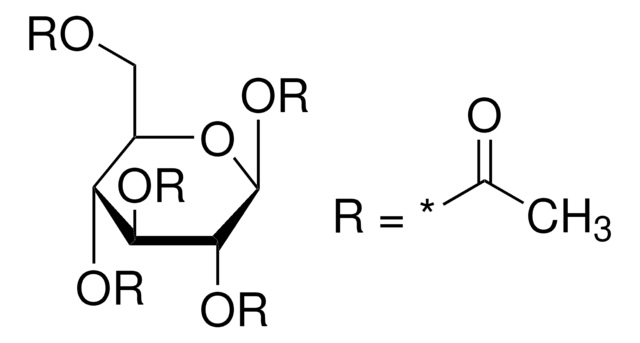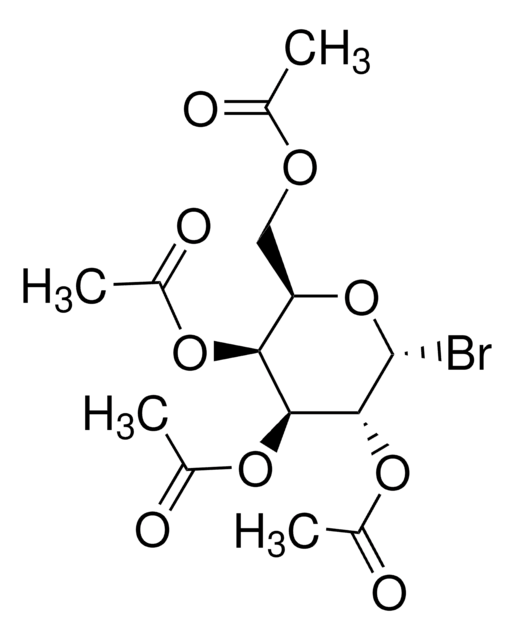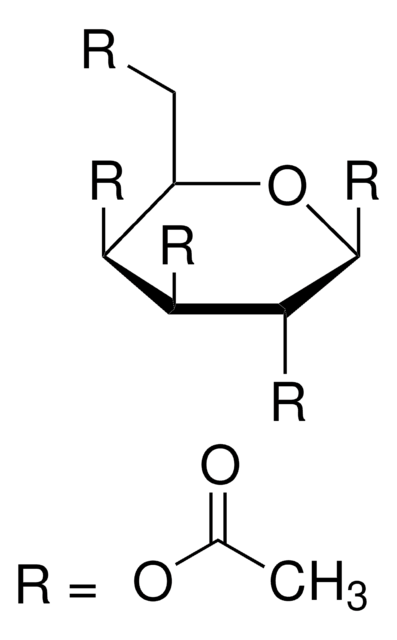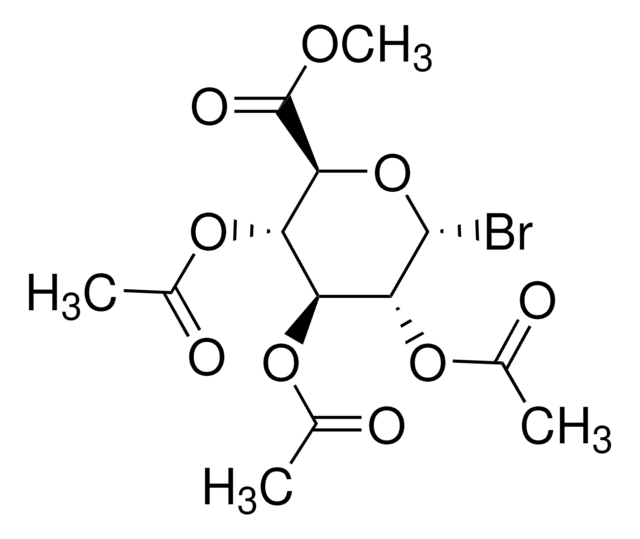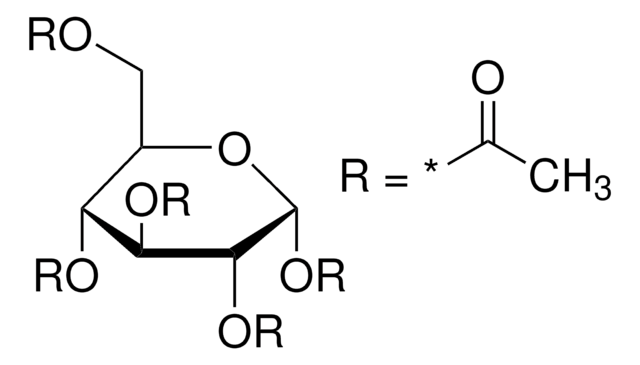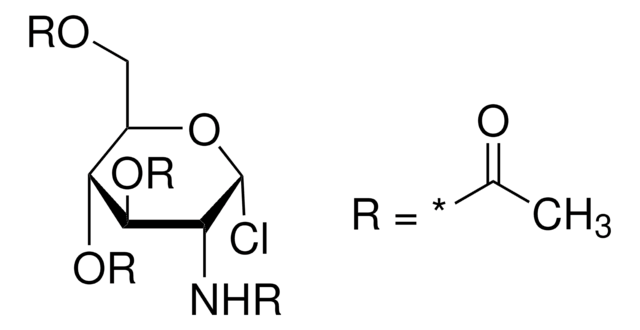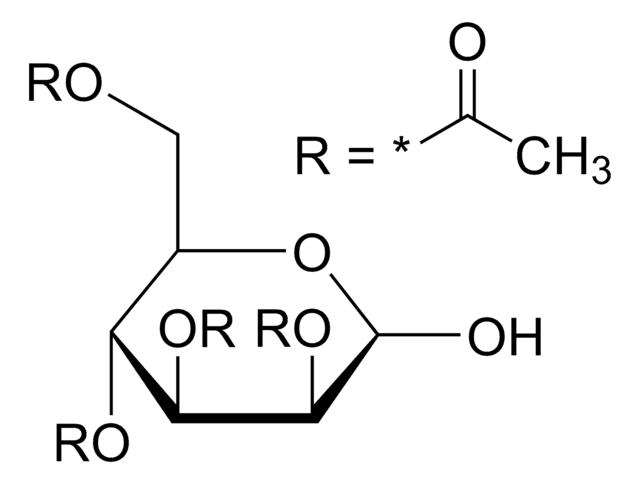A1750
Acetobromo-α-D-glucose
≥95% (TLC)
Synonym(s):
1-Bromo-α-D-glucose tetraacetate, 2,3,4,6-Tetra-O-acetyl-α-D-glucopyranosyl bromide
About This Item
Recommended Products
biological source
synthetic (organic)
Quality Level
Assay
≥95% (TLC)
form
powder
optical activity
[α]25/D 188 to 202 °, c = 1 in chloroform
contains
1% CaCO3 as stabilizer
color
white to off-white
mp
88.5 °C ((191.3 °F ))
shipped in
dry ice
storage temp.
−20°C
SMILES string
CC(=O)OC[C@H]1O[C@H](Br)[C@H](OC(C)=O)[C@@H](OC(C)=O)[C@@H]1OC(C)=O
InChI
1S/C14H19BrO9/c1-6(16)20-5-10-11(21-7(2)17)12(22-8(3)18)13(14(15)24-10)23-9(4)19/h10-14H,5H2,1-4H3/t10-,11-,12+,13-,14+/m1/s1
InChI key
CYAYKKUWALRRPA-RGDJUOJXSA-N
Looking for similar products? Visit Product Comparison Guide
Application
Other Notes
Signal Word
Warning
Hazard Statements
Precautionary Statements
Hazard Classifications
Eye Irrit. 2 - Skin Irrit. 2 - STOT SE 3
Target Organs
Respiratory system
Storage Class Code
11 - Combustible Solids
WGK
nwg
Flash Point(F)
Not applicable
Flash Point(C)
Not applicable
Choose from one of the most recent versions:
Already Own This Product?
Find documentation for the products that you have recently purchased in the Document Library.
Customers Also Viewed
Our team of scientists has experience in all areas of research including Life Science, Material Science, Chemical Synthesis, Chromatography, Analytical and many others.
Contact Technical Service